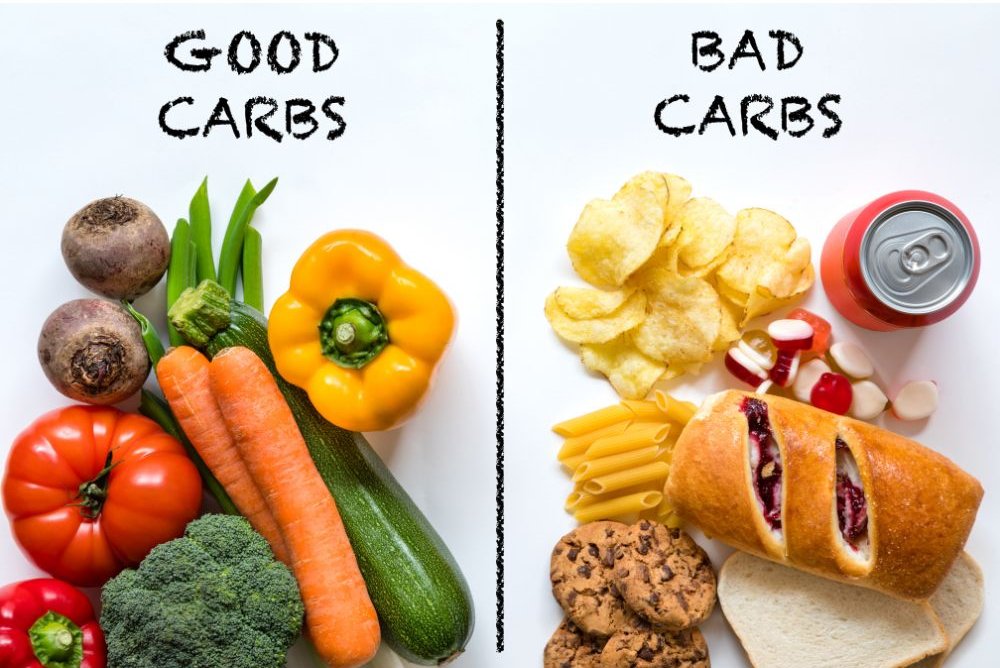Carbohydrates are often labeled as the villain in many diet trends. This reputation leads some people to consider eliminating them entirely from their diets. But is it actually okay to never eat carbs? Let’s explore the role of carbohydrates in our diet, the potential effects of a carb-free lifestyle, and whether it’s sustainable or healthy in the long run.
Understanding Carbohydrates
Together with proteins and fats, carbohydrates make up the trio of macronutrients vital to overall health. The body uses them as its main source of energy. This is especially true for the brain and muscles during physical activity. Carbohydrates fall into two main types:
- Simple Carbohydrates: Found in sugar, honey, and fruits. These carbohydrates provide immediate energy and are rapidly absorbed.
- Complex Carbohydrates: Found in whole grains, legumes, and vegetables. Because they digest more slowly, they offer a stable source of energy and essential nutrients.
The Role of Carbs in the Body
- Energy Source: The body prefers to get energy from carbs. Glucose, derived from carbohydrates, fuels cells, physical activity, and brain function.
- Nutrient-Rich Foods: Vitamins, minerals, and fiber are abundant in many foods that contain carbohydrates, particularly fruits, vegetables, and whole grains. These nutrients help maintain health and reduce disease risk.
- Fiber Intake: Fiber, a type of carbohydrate found in plants, aids digestion and bowel health. It also helps lower cholesterol. Eliminating carbs can reduce fiber intake significantly.
Potential Risks of a No-Carb Diet
Some individuals may do well on low-carb or ketogenic diets. However, choosing to never eat carbs may bring several risks:
- Nutrient Deficiencies: Avoiding carb-rich foods may lead to missing essential nutrients like vitamins A, C, potassium, and magnesium.
- Energy Depletion: Carbohydrates are the body’s main fuel. Without them, you might feel fatigued, unfocused, or weak, especially during intense activity.
- Digestive Issues: A fiber deficit from lack of fruits, vegetables, and grains can cause constipation and irregular bowel movements.
- Impact on Mental Health: Carbs influence serotonin production, which regulates mood. Extremely low carb intake may lead to irritability or depression.
- Sustainability: A no-carb diet can be hard to maintain. It may increase the risk of binge eating or reverting to old habits.
When Low-Carb Diets Can Be Beneficial
Eliminating carbs completely isn’t ideal for most people. Still, low-carb diets may offer benefits in some cases:
- Weight Loss: Low-carb diets may help with temporary weight loss, according to research. Fat and water may account for a large portion of the loss.
- Blood Sugar Control: These diets may help manage blood sugar, especially for people with diabetes.
- Improved Metabolic Health: Some individuals report better cholesterol and triglyceride levels on a low-carb plan.
Carbohydrates: Benefits vs. Risks
| Benefits of Carbs | Potential Risks of Eliminating Carbs |
|---|---|
| Provide a primary energy source for the body | Risk of nutrient deficiencies (e.g., vitamins A, C, magnesium) |
| Support brain function and mental clarity | Fatigue, mental fog, and reduced physical performance |
| Aid in digestion and support bowel health through fiber | Digestive issues, such as constipation, due to low fiber intake |
| Rich in essential vitamins, minerals, and fiber | Possible impact on mood and mental health due to low serotonin levels |
| Help regulate blood sugar levels when consumed properly | Sustainability challenges, leading to potential binge eating |
Conclusion
While it may be possible for some individuals to never eat carbohydrates, it is generally not recommended for overall health and well-being. Carbohydrates are a crucial macronutrient. They provide energy, support digestion, and supply essential nutrients. The idea to never eat carbs may appeal to some, but it often overlooks the vital role these nutrients play in the body.
Instead of eliminating carbs entirely, focus on choosing healthy carbohydrate sources. Include plenty of vegetables, fruits, and whole grains in your diet. Try to minimize refined sugars and processed foods. A healthy lifestyle is supported by a balanced diet that includes fats, proteins, and carbs.
Everyone’s dietary needs are different. Consult a healthcare professional or registered dietitian to find the best approach for your health goals and lifestyle.
Frequently Asked Questions (FAQs)
No, completely eliminating carbohydrates from your diet is generally not recommended. Carbs are essential for providing energy, supporting brain function, and offering important nutrients like fiber, vitamins, and minerals. A balanced approach to carbs is key to maintaining overall health.
While some people may see short-term weight loss on low-carb or ketogenic diets, cutting out carbs entirely may lead to nutrient deficiencies, fatigue, and digestive issues in the long run. It’s important to focus on healthy carb sources rather than eliminating them completely.
The body uses carbohydrates for energy, particularly to fuel the muscles and brain. They also contain plenty of fiber, which plays a key role in digestion and maintaining balanced blood sugar. Carbs from whole grains, fruits, and vegetables also supply vital vitamins and minerals that are necessary for overall health.
If you don’t eat enough carbs, your body may use protein and fats for energy, which can lead to muscle loss and fatigue. You might also experience brain fog, digestive issues, and mood swings. Over time, a low-carb diet can affect overall metabolic health.
No, not all carbohydrates are bad. Simple carbs (like sugar) can be harmful if consumed in excess, especially processed foods. However, complex carbs, found in whole grains, fruits, and vegetables, are nutrient-dense and provide long-lasting energy, fiber, and essential nutrients.

